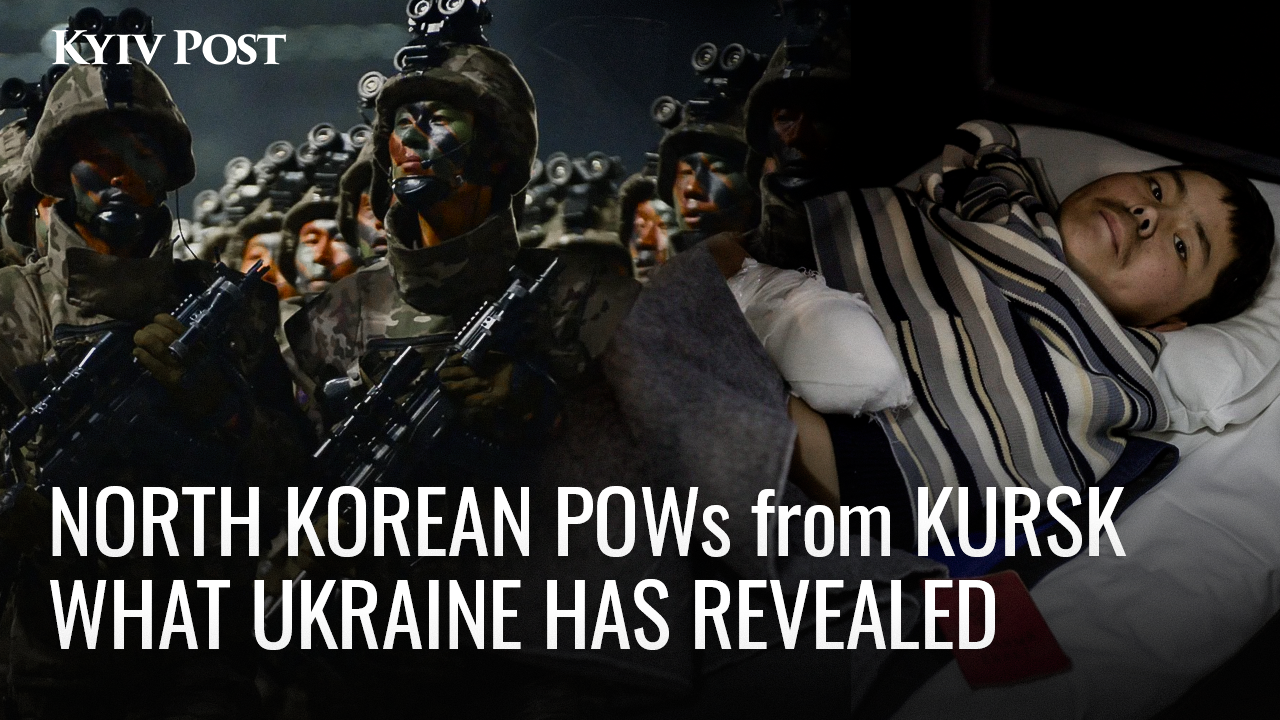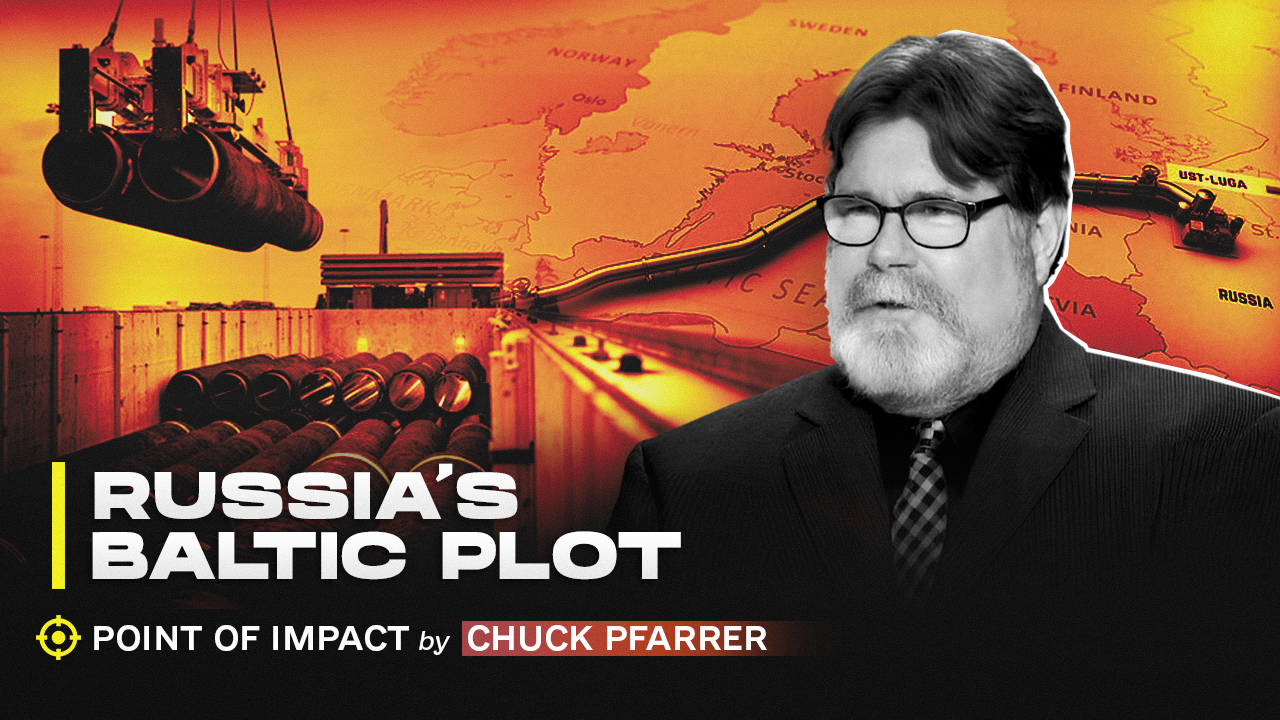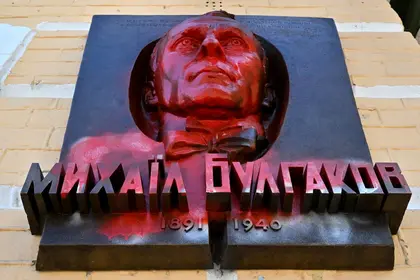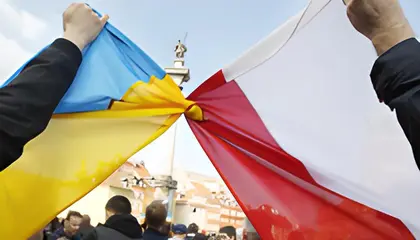“Poets are just as smart as generals and more dangerous.” —Danilo Kiš
I.
JOIN US ON TELEGRAM
Follow our coverage of the war on the @Kyivpost_official.
Czesław Miłosz apparently once said that the main difference between a Western and an Eastern European intellectual is that the former has never had a good kick in the ass. This rather blunt aphorism, referred to in Witold Gombrowicz’s 1953 Diary, sprang to mind when I saw the poem “Clay” by Tomasz Różycki in English translation in the New York Review of Books. But before I thought of Miłosz, I experienced a strange moment of disorientation. I know the poem “Clay” well in the Polish original (it’s from the collection To the Letter, in my opinion the most outstanding book of poetry from the last few decades in Poland). Mira Rosenthal’s translation is excellent, and yet at first I didn’t recognize the poem at all, so new and unexpected in its altered linguistic context. I read the first line, “When will we begin to read like Westerners?” And for a moment we wasn’t the community to which I belonged: suddenly I was the reader of an American literary magazine, and I was looking at Polish and Central European affairs with the detached albeit inquisitive eye of someone from the outside. But only for a moment! Then I became self-aware again and returned to reality, with America like scenery moving somewhere far beyond the horizon, and I was sitting at the kitchen table again in my hometown along the Oder River, remembering (not without irony) that, unlike us, readers of the New York Review of Books have never had a good kick in the ass.
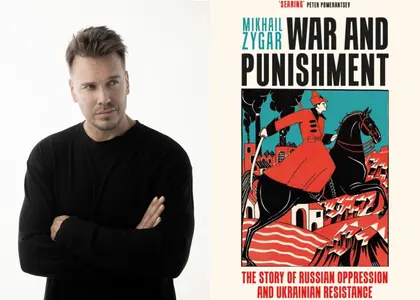
Chief Editor’s Choice - Book of the Year
It’s hardly a coincidence that I’m thinking about Różycki’s poem again right now, while on a fellowship in Prague. I feel some urgency, a strange need to read it once more from a removed perspective, through the eyes of an imagined American, in another language somehow mine for a moment. I’m a foreigner here, albeit from neighboring Poland, and my experience in Prague is similar to that of reading the English version of “Clay” a few months ago: I’m able to look with a kind of detachment, even if I haven’t really moved from home, even if I’m still here, right dab in the middle of Central Europe.
My place here is next to the Olšany Cemetery, and in the morning I like to sit on a bench with a book in front of Kafka’s grave, watching people go by, either individually or in small groups, to place a pebble or a letter or a packet of sugar with the logo of his favorite Café Louvre. Behind my back is the cemetery wall and the legendary Radio Free Europe with its huge satellite dishes aimed at the sky. I turn the pages unconsciously; the blue and yellow bracelet on my wrist reminds me that the war in Ukraine is still going on and that our world ends where the Russian world begins. But what about the other, western border, where does it run?
Today’s Western intellectuals are no longer so ignorant of what it means to get a good kick in the ass.
For many days I’ve been thinking of “Clay,” walking around the city with it, reading it to my Prague friends, pestering the poet himself in letters I send off to his hometown along the Oder. How do Westerners read, I ask in one of them, how does their reading differ from ours? I address the question to Różycki, but answers also arrive from other sources.
Miłosz’s pugnacious aphorism encapsulates the difference very simply: Western intellectuals lack the historical experience common in other parts of the world. Neither as individuals nor as a social group have they ever known a certain kind of pain and a certain kind of degradation. The fact that we, the inhabitants of a Europe the poet calls Eastern, have experienced it comes not, of course, from any merit of our own – rather, it’s a heavy burden that’s hard to shake even in times of peace and prosperity, which never last that long here anyway. All the same, such experiences, whether individual or inherited from ancestors, mark our perspective, our way of reading – not only literature but also the world and history. Western intellectuals are not encumbered with this kind of weight: an enviable condition, though it can also evoke an indulgent smile. For Miłosz, it seems the first intertwined with the second.
In his famous essay “The Tragedy of Central Europe,” published not long after the suppression of Polish Solidarity, Milan Kundera proposed a slightly more complex picture. For the Czech novelist, the division into East and West doesn’t coincide with borders on the map. Central Europe is a hypostasis of this ambiguity: countries found under the political influence of Soviet Russia (i.e., the East) can, at the same time, belong spiritually to the West. Central Europe is not a geographical territory nor an organized state but “a culture or a fate,” the creation of a free imagination struggling with historical determinism: “Its borders are imaginary and must be drawn and redrawn with each new historical situation.” Kundera believed that a fatalistic self-awareness and a deep attachment to Western cultural values are the bonding agents of our identity; but our tragedy is incomprehensible to the West, where this awareness has not yet sufficiently unfolded and values have undergone inflation. The readers with whom we feel a bond no longer exist, but we still have to believe in them.
Miłosz and Kundera’s diagnoses were not just a description of reality; they also had a clear persuasive orientation. Both writers were fugitives from behind the iron curtain and, as such, found themselves outside their native community – the circle of their audience expanded to include people of the West. In the case of Miłosz, the primary addressee was the intellectual left, blind to the painful experiences of the inhabitants of communist countries, whereas Kundera was addressing representatives of a postmodern culture of exhaustion, for whom literature and art had become something anachronistic and of little value. Even if persuasion turned out to be ineffectual on a mass scale, the message found some footing. As evidence of the far-reaching internal transformations of Western intellectuals, Tony Judt provided a response years later in one of his conversations with Timothy Snyder, collected in the book Thinking the Twentieth Century. In a chapter characteristically titled “Generation of Understanding: East European Liberal,” the British American historian emphatically made his case: “Eastern Europe doesn’t just want sympathy and support; it wants to be understood.” This is exactly what Kundera and Miłosz were seeking.
But the geopolitical situation has changed significantly since their entreaties. The democratic transition of postcommunist countries after 1989 has, to a certain extent, eliminated the division between East and West; a generation has been born and grown into adulthood – and produced their own offspring – that doesn’t remember that totalitarian reality. On the other hand, the situation of the West, embroiled in its conflict with the Arab world and a worsening migration crisis, in no small measure confronts its people with the world’s increasingly brutal nature – either directly or indirectly, through an effort of understanding. Today’s Western intellectuals are no longer so ignorant of what it means to get a good kick in the ass. They are also experiencing, like their Central European counterparts, other schisms, other iron curtains dividing their own communities into nations that do not speak a common language.
II.
The opening question of Różycki’s poem seems to bracket this whole context of historical-cultural transformation. It was posed prior to Russia’s full-scale invasion of Ukraine (albeit at a time when Putin’s neo-imperialist designs were becoming increasingly obvious), but the current war proves that Miłosz and Kundera’s diagnoses – the latter from almost 40 years ago, the former from 70 years ago – are still fitting: the inhabitants of an imaginary Central Europe are once again grappling with history and experiencing quite real pain and indignity; in order to make it through, they must once again solicit understanding for what looks, from a Western perspective, like a naive anachronism. “When will we begin to read like Westerners?” Różycki asks, which could mean: when will we get rid of our burden, when will we free ourselves from this fate? But also: when will the persuasive distinctions of Miłosz and Kundera cease to be necessary for us? The question returns to these old ruts of thought, but the poetic answer rises to a new level of complexity:
When will we begin to read like Westerners?
From mud and boredom, from spit and fear of enemies,
from bones pulled out of sand and stolen quicklime we’ve fastened a golem.
Nothing’s enough for him—
a share of eggs and vodka, a seat in the henhouse,
monthly visits from virgins and schoolboys.
He pesters us while cooking, barges into the bedroom,
panting, puffing, grunting, but he can’t pronounce
a single word. He’s speechless, set in motion
by a complex code of letters, now unknown,
forgotten along with spelling rules in the constant
crisis of education, the shortages and lack
of humanistic subjects. For who can mold
a string of signs so that even a rolled-up paper
gun can open fire, bringing down the ghost
with a round of explosive sound, a flash of meter?
In “Clay,” the Central European burden or fate materializes as a golem. Do you know the legend? At the end of the 16th century, during the escalating persecution of Prague’s Jews, Rabbi Judah Loew ben Bezalel fashioned a human figure out of clay to defend the ghetto from Christian attacks. The golem would come to life when a wad of paper with a kabbalistic incantation – a combination of the letters of God’s name, HaShem – was placed in its mouth. As is common in Central Europe, the story took a dramatic turn. One Friday, the rabbi forgot to take the shem out of the golem’s mouth, and when he showed up at the synagogue for the evening service, the clay creature had come to life and, left to its own devices, was destroying everything in the vicinity and violating the holy peace of the sabbath. When it was finally restrained, it crumbled into dust.
Różycki’s story is inscribed in a similar structure, except that it extends over a period of time that transcends individual biography and does not necessarily concern only one particular national community. Note the composite quality of the narrative’s symbolic references: a Jewish golem, Slavic folklore with its souls coming to this world to be fed and watered with vodka and eggs, and a classical Minotaur with a regular offering of schoolboys and virgins. The poem’s punchline also features a vague sketch of a Messiah-Savior, the central figure of Polish Romantic poetry. In the expanded version of the legend, a good-natured clay muscleman manages to transform himself over the course of several generations into a monster voracious for human blood. He then turns into someone even more difficult to control: a disembodied phantom that harasses those he’s supposed to serve. For there to be a happy ending, Różycki seems to be saying, a new rabbi Loew needs to appear with his own magic wad of paper. Or, someone similar to him, say: a poet.
From outside the sphere of one’s native community, it’s possible to see what is see-through to the internal observer: the golem, adapting to everyday life.
III.
It could have been an uplifting parable about a community that must come together around its true identity and mature in order to weather a crisis; it could have been a story about the power of literature overcoming the demon of history—if it weren’t for the irony of that initial question. “When will we begin to read like Westerners?” echoes the cliché about the need to catch up to the West, repeated ad nauseam in Central European public discourse since the ’90s, in opposition to conservative-nationalist positions. The negative aspect of this cerebral platitude is the erasure of difference – as if such things are already behind us, like a childhood illness or unfashionable clothes, long outgrown; those who still have a slight cough or who wear cropped sweaters must either be ignored or ridiculed.
If the readers of the New York Review of Books were able to browse through Polish, Czech, or Slovenian literary journals – those with liberal or leftist profiles – they would no doubt be surprised and perhaps pleased at how much their contents and even their typography resemble what they encounter at home. (Wouldn’t there be a tinge of superiority in this cheerful recognition? Ah, at last, they’re just like us!) And yet, when we attempt to write and read like Westerners, we’re like a child proclaiming that they’re big enough and can do everything an adult can do. But are Westerners really so big? Do we really need to rise to their method of reading and writing? “When” in Różycki’s question ironically undermines this supposition as well. The question goes both ways: to ourselves and to Westerners.
This dual address manifests in the confusion I described when first encountering the poem in English and becomes more evident within the communicative frame of a translation. Różycki writes “we” but situates himself somewhere outside. From outside the sphere of one’s native community, it’s possible to see what is see-through to the internal observer: the golem, adapting to everyday life. He has invaded our kitchens, encroached on our bedrooms, panting, wheezing, grunting, blending into the background noise. He’s a nuisance we’ve learned to live with, even if we complain at times. Some claim he’s just a fairy tale, just forget him, he’ll disappear. And only in that momentary absence do we realize how much he had a hold on us, whether we knew it or not. But it’s only possible in places where he doesn’t exist, beyond the borders of our world.
IV.
Ours, but which one is that? Things seem to be confused again. I’m writing this text with American readers in mind, trying to adjust to knowledge, experiences, and sensibilities different from my own and, at the same time, say something about myself, about us. So, I move like a pendulum between the Central European “we” and its more heterogenous version, between the original and its translation. And it may indeed happen, dear Reader, that even just for a moment, by mistake or on purpose, you cast yourself inside the role of a “we” or an “us” or an “ours.” If, by the way, you manage to catch sight of a golem, it’s possible he’s not entirely Central European but in fact a bit of your own golem you’ve not recognized till now or have chosen to ignore. “When will we begin to read like Westerners?” has an inverse: “When will we stop reading like Westerners?” “Clay” invites us to try both. It’s a utopia, of course, but the effort to make it a reality can be a liberating experience.
I’m reminded of Kundera again (though I fear it’s a slightly unfaithful reading): Central Europe is a territory of shifting borders, a creation of the imagination. The experience of freedom, of stepping outside the community and its traumas, anxieties, obsessions, and paranoias, begins in its own right with an act of the imagination. My movement “back and forth” while reading “Clay” in the English translation was no different, and as happens with fanciful journeys, I returned not quite the same.
Różycki, much to the chagrin of people in Poland, travels a lot; he also reads a great deal, and contrary to what some myopic critics claim, his reading ranges far beyond the Central European canon (though, when asked who his favorite writer is, he says: Bruno Schulz). Traveling, reading books, reading history, fate, the world. Experiencing freedom, if only in the imagination. Relocating “me” and shifting the borders of “we.” The Romanian philosopher Gabriel Liiceanu writes that freedom relies on the ability to establish one’s own and other people’s boundaries: “We mold ourselves, taking in hand what is different from us and shaping it, thanks to the infinite universe of designs we use to assemble our lives.”
“But don’t take it too seriously,” Różycki wrote to me when I asked him in a letter about the poem. “It’s also a bit playful and contrarian.” Indeed, I have to keep an eye on the irony. I already mentioned the journalistic cliché echoed in the poem’s initial question. And there are quite a few more platitudes, phrases, and linguistic clichés here, especially in the passage about the forgotten activation code: the ignorance of spelling rules, the crisis of education, the shortcomings of modern humanities… the blah blah blah of intellectuals longing for that happy era when the golem obeyed us (“We’ve been hostage to our own literature for some time,” Różycki wrote in his letter). In fact, the entire poem is composed of ready-made material: complaints, excuses, catchy buzzwords, popular myths, stereotypical images, in other words, everything that public discourse and the prevailing imagination feed on. This is the clay of the title, the material used to form our golem, our burden, our fate. The irony lies in using this malleable mass of language as if it were the speaker’s own – which it isn’t, or isn’t fully, since Różycki never once uses the pronoun “I.”
The ending is also ironic: a rolled-up paper gun is a kid’s toy, probably not very effective in fighting the mighty ghosts that haunt all small nations of Central Europe. The mature answer to the poem’s two framing questions should be: never and no one. Similar negations, which echo the strategy Odysseus used to deceive the giant Polyphemus, appear in the poem “In the Cave” from To the Letter. There, the negations are addressed to “the one-eyed beast” of the nation, from whom we must hide our choices of identity:
We are, after all, never just one nationality,
so let’s settle it for once—this choice we have,
our mongrel love, not for a people but a language
of marks, cascade of consonants, signs of incongruity,
a tattoo flush with blood at night if seen
in a certain light: just as with love, the most striking
thing is that which knows how to hide
from the beast of the nation, a one-eyed beast
to whom it answers: nobody, nothing, never,
for no one, from nowhere and nobody’s…
But in “Clay,” Różycki leaves both initial and concluding questions – so naive and outdated, he doesn’t ask in his own name – unanswered. The poem’s contrariness is most evident here: it refuses to come down on any one side, neither stabilized in irony nor a serious tone, neither in an “I” nor a “we,” neither in mature reason nor utopian naivete. Such is the tragicomic figure, fastened together from incoherent models, that emerges at the end: Rabbi Loew with a wad of paper, a romantic Messiah, David facing Goliath, a sheriff taking aim at a villain, a ghostbuster armed with a proton pack, a child with a paper gun, a poet reciting a poem… None of them will succeed, and at the same time there’s no way out, someone like this must appear sooner or later and take a shot.
If you manage to catch sight of a golem, it’s possible he’s a bit of your own golem you’ve not recognized till now or have chosen to ignore.
V.
How is it possible that a vision formed out of such paltry, worn-out material holds firepower? This is the mystery of the poem. Perhaps the whole point is that Różycki focuses on the plasticity of the clay, instead of thinking of it as something meant to harden into a distinct shape. As Kundera proposed, Central Europe has no fixed borders and must constantly be reimagined, so Różycki’s poem could be just such a work in progress, kneading a new community, molding a string of signs to bring it to life. Perhaps this is why the Poet-Savior takes the form of a child with a paper gun: someone not yet ready, susceptible to further shaping, infantile, but also full of childlike freshness.
The lack of internal and external form and our submission to the tides of chaos, Miłosz wrote long ago, is our differentia specifica, our main shortcoming and our greatest advantage. Różycki adds, from today’s perspective, a bit playfully but in essence seriously: we don’t have to fear the golem when we ourselves are the clay. For me, this poetic intuition resonates with what Serbian anthropologist Ivan Čolović proposes for our age: parting with the category of identity in favor of more flexible concepts less convenient for ideological manipulation. When Čolović writes of national identity as an illusion and reified abstraction, it is impossible not to think of a golem.
The poem’s momentum also stems from its long perspective, its bold focus on the future. It begins with the word “when,” a boundary marker for a Central European utopia, and ends with an explosion, albeit imagined but poetically realized: “a flash of meter” lifts the words beyond the present. In the collection To the Letter, “Clay” belongs to the middle section, “The Third Planet”— the 33 poems grouped here deal with mundane topics, but their perspective is cosmic. A rolled-up paper gun is not intended for short-term solutions, it’s not a political tool in the sense readily accepted today. To quote Gombrowicz (also one of Różycki’s go-to authors) from his diary again: “If you want a projectile to soar, you must point the barrel upward.”
We don’t have to fear the golem when we ourselves are the clay.
VI.
For someone who, like me, is neither tourist nor permanent resident, Prague consists of a million bewilderments, a rapid “back-and-forth.” In the carefully orchestrated decor of the cosmopolitan capital, openings to other space-time continuums appear again and again, sometimes unnervingly crowded together: a garish ad in the style of wild 1990s capitalism on the facade of a bourgeois block of flats, a lone brick chimney outlined against an office building like a prehistoric stalagmite, the rude tone of the librarian’s voice that takes me back to the era of toilet paper queues and green Cuban oranges. On the doormat in front of my neighbor’s apartment, a pair of worn-out shoes looks like it’s been standing there for centuries, and maybe Charles Simic is right that their “mute patience” holds a kind of mysticism. It’s no coincidence that Różycki’s poem came back to me right here, close to the heart of Central Europe.
I find myself yearning for the sleepy, somewhat unreal neighborhood of Josefov. Apparently, Rabbi Loew hid the remains of the golem in the attic of the Old New Synagogue. In a souvenir shop I buy a small clay figurine. As I slip it into my coat pocket, I’m reminded of Kundera’s idea that the fate of the Jewish people, continually threatened with annihilation and persistently resisting the great story, is the essence and symbol of the fate of Central Europe. But I’m also a bit concerned about whether this symbol, still so evocative of strong emotion but to a certain extent anachronistic, has ultimately become our golem – for, as Hannah Arendt has already written, the exclusion of the Jewish people has become a historical precedent for further exclusions, and we can debate who is the Jew of our time: A refugee from Donbas? A boy from Africa forcing his way through an electric fence on the Polish-Belarusian border? A Palestinian child? An illegal immigrant from Mexico? And what do I mean by “our” here anyway?
I’d like to think about it more deeply, but I’m being swept along by a multilingual crowd turning into Hradčany. I stop at the Charles Bridge to photograph the huge blue and yellow banner reading HANDS OFF UKRAINE, PUTIN! above the entrance to the baroque St. Salvátor Church. It strikes me that, like a biblical verse, this inscription will remain ingrained here forever.
At Malostranské Square, a tram arrives that will take me to the book fair. Today’s featured speaker is Ukrainian poet and novelist Serhiy Zhadan. As soon as I walk in, I’m moved by the atmosphere, full of good energy and optimism, no doubt an impression made by the crowd of very young people, mostly war refugees, clutching Zhadan’s books. What are they expecting? Why did they come? They talk about current issues, about Ukraine’s new reality, about the forced move of culture to social media, about the challenges for activists, about reinforcements for those who are fighting. But someone from the audience also raises the question of whether, in a time of war, it’s possible to create space for reading. Smiling, Zhadan replies that he took two books with him, one by his favorite writer, Bruno Schulz, and the other – not at all on account of Prague! – Kafka’s diaries. I’m smiling, too: no, we still don’t read like Westerners…
What about writing, someone else asks. Are poems necessary in wartime? Yes, Zhadan says (I should be taking notes, but I just keep listening), young Ukrainian readers need them, not poems about war – they have war every day – but poems about life, about love. Good poetry, good prose about the war are yet to be written. But literature is also necessary to get through to people in the West; it will communicate who we are more powerfully than any reporting or TV broadcast.
When the event comes to an end, readers line up in a long queue to get autographs and take snapshots. A gun made out of paper, I suddenly think. Today’s Ukraine is desperately requesting other weapons. But tomorrow they will need, all of us will need, a gun made out of paper.
Translated from Polish by Mira Rosenthal.
This essay is republished from Words Without Borders. The original can be read here.
You can also highlight the text and press Ctrl + Enter



